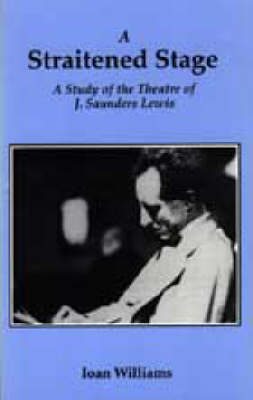Saunders Lewis (1893-1985), poet, novelist, lecturer, founder of Plaid Cymru (the Welsh Nationalist Party) was also the greatest Welsh language playwright of the century.
His nineteen plays are a peculiarly Welsh response to the crisis in European theatre of the 1890s, and make a distinctive contribution to mainstream European culture. In this authoritative study, loan Williams describes Lewis's important place in a line of dramatists stretching from Racine, Ibsen, Synge, Yeats, Claudel and Eliot, through Beckett, Brecht and Pirandello, to lonescu, Arden, Osbome and Pinter, and suggests a new direction for English theatre based on Lewis's work.
Lewis's theatre was essentially Naturalist, his 'straitened stage' narrow and clearly defined. Yet like Brecht and Pirandello he recognised the fragility of human experience and its inability to organise the world to achieve individual definition.
As a Catholic convert, however, Lewis recognised a spiritual dimension to the human character which enabled his creations to confront their profound fears and free themselves oj the restraints of materialism and society. Drawing on the Bible, Welsh legend, the Dark Ages, the Cold War, Lewis's plays, with their central strand of irony, force their audience to re-examine themselves and society. As a result, the theatre of Saunders Lewis is often poetic and always provocative.
Ioan Williams lectures in Drama at University College, Aberystwyth. An authority on many aspects of European theatre and Welsh culture, he is the general editor of a series of translations of European plays into Welsh.
- ISBN10 1854110438
- ISBN13 9781854110435
- Publish Date 23 February 1995
- Publish Status Out of Print
- Out of Print 3 September 2024
- Publish Country GB
- Publisher Poetry Wales Press
- Imprint Seren
- Format Paperback
- Pages 216
- Language English
